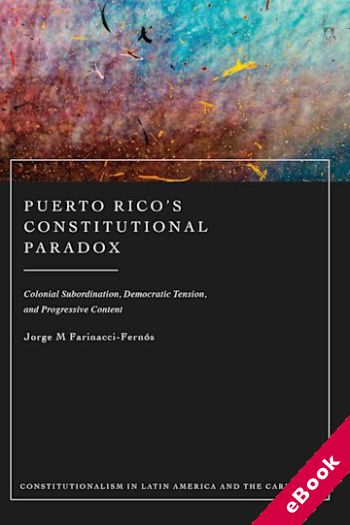
The device(s) you use to access the eBook content must be authorized with an Adobe ID before you download the product otherwise it will fail to register correctly.
For further information see https://www.wildy.com/ebook-formats
Once the order is confirmed an automated e-mail will be sent to you to allow you to download the eBook.
All eBooks are supplied firm sale and cannot be returned. If you believe there is a fault with your eBook then contact us on ebooks@wildy.com and we will help in resolving the issue. This does not affect your statutory rights.
This book explains how the People of Puerto Rico managed to adopt a constitution whose content and process were both original and colonialist, participatory and undemocratic, as well as progressive and anticlimactic. It looks in detail at the rich contradictions of the Puerto Rican constitutional experience, focusing on the history and content of the 1952 Constitution. This constitution is the only constitutional document written by the Puerto Rican People themselves after more than 500 years of Spanish and US colonialism.
By exploring Puerto Rico's unique history and constitutional experience the book shines a spotlight on key emerging themes of comparative constitutional studies in this area: state constitutionalism, the persistence of colonial relationships in the Caribbean, and the continued development of constitutionalism in Latin America.
The book delves deep into the particular experience of Puerto Rican constitutionalism which combines elements of colonialism, democratic tensions, and progressive policies. It explains how these features converge in a constitutional project that has endured for 70 years and continues its contradictory development. It considers issues such as the island's colonial history, including its conflicting relationship with democratic values and the constant presence of social movements and their struggles.
It also explores the content of the 1952 Constitution, focusing on its progressive substantive policy, particularly its rights provisions, its amendment procedures, and the governmental structure it set up.